Outlasting the Fog: Walking Myself Home on the Camino: Part 2
Today, in part 2, my focus turns inward to the journey of heart and soul that I’ve been on since early 2022. With each step on the Camino over 186 miles, I found new hidden reserves of strength.
Welcome back, cherished readers, to Part 2 of the six-part series co-authored with my daughter
, my Camino companion, who is soon launching her own Substack, . The series (see Part 1 for the full description) looks at our burning questions for the Camino as well as the day-to-day discoveries and delights on the road and offers readers all the information they need to plan their own Camino experience.On the Camino, I grappled with the question: How can I live in grateful acceptance of my one precious life with all its beauty and struggle? Over many miles, the question invites me to look in equal thirds at past, present and future. I ask myself:
Can I be at peace with the past, live with a full heart and ready spirit in the present, and be patient with the future as it unfolds?
Today, in Part 2, Looking Within, my focus turns inward to the journey of heart and soul that I’ve been on since early 2022, and the lessons it continues to bring me. Shining this light on my heart, its hurts and desires, allowed me to keep walking, even when I was so very weary and each step was a weight I did not think I could bear. I searched for hidden reserves of strength and I found them.
First, a note: throughout these essays you’ll see frequent quotes from our nightly ritual on the Camino: Each of us writing in my grandmother’s travel diary; reading Mark Nepo’s daily reflection from The Book of Awakening, and poems from
’s collection Pilgrim. These sources of inspiration were uncanny in conveying precisely the message we needed that day.The wonder of the singular explorer
“Our spiritual charge is to maintain the wonder of the singular explorer that each of us is.”
—Mark Nepo, The Book of Awakening
To walk 186 miles in 14 days is not for the faint-hearted. Pilgrims on the Camino de Santiago, the ancient pilgrimage route across Spain to the cathedral in Santiago de Compostela, heed a calling. Their motivations vary, as my daughter Marielle and I discovered when walking those well-trodden paths. For some, it is purely a physical challenge, a feat of athletic endurance in landscapes of uncommon beauty.
The majority, however, were seekers like us. We would ask a fellow pilgrim we fell into conversation with: What is your motivation? They would answer invariably along the lines of: “To find myself after again after a divorce or separation,” “To become a better person,” “To heal myself after the loss of my loved one,” and “To figure out my next phase in life.”
We all repeated the common phrase “the Camino will provide,” and walked in hope that beyond a bed and a warm meal at the end of the day, the Way would illuminate a spiritual direction once we stepped off the path and resumed our normal lives.
About five days into our walk, my mind (and heart) had largely left the territory of the past and began to live more in the present moment. It was as if the path itself held some power over me. My monkey mind was stilled by the rhythmic cadence of our steps on the boardwalks along the Portugese Atlantic Coast, on the paved sidewalks of small villages, the dirt paths of eucalyptus forests and the busy streets of the large towns where booked our guesthouse for the night. After seven or eight hours of walking, with the inevitable blisters forming no matter how comfortable and broken-in the hiking shoes, the mind focuses on the next step, to keep moving forward. I coached myself, while Marielle was several feet ahead, carrying the heavier pack, youth and better fitness on her side: “You can do this. Look up. Look around.”
This is what saved me, and brought me back to the present moment, time and time again. The screech of the gulls and the birdsong in the forest. The crashing Atlantic waves and the rippling stream. The sweet roses cascading over stone walls, sunflowers in fields of corn, and fields blanketed with purple morning glories, those “humorous beautiful weeds,” as poet Mary Oliver described them. The air, morning fresh or evening damp, and the sunlight, the clouds and the occasional rain. Spending the majority of one’s day outdoors you become one with the natural elements. You can either endure or relax into whatever gifts nature is offering. I chose—sometimes by sheer force of will—the latter. A deep breath and one more step.
Outlasting the Fog and Letting Go
On Day 8 of the walk, our last day of walking before reaching the albergue that would provide a much-needed rest day, we walk along the River Duoro and the morning fog envelops us. That morning, our reading from The Book of Awakening is about outlasting the fog. Mark Nepo writes about how “often the emotional tragedies of life begin when we rearrange our lives—changing partners, religions, jobs—in an effort to find a sense of meaning that is sleeping numbly within us.” He concludes:
“Being human we all have fogs roll in around our heart, and often, our lives depend on the quiet courage to wait for them to clear.”
I can sense the fog clearing from my heart, just as the sun burns away the mist and the view ahead becomes clearer, its colors purer than they’ve ever seemed before. We fall into step with a jovial Austrian man, a fellow Pilgrim, his tidy whites hanging to dry off the back of his rucksack. We ask him our question (stay tuned for Part 5 of our series when we share the playlist and the stories behind it): What is the song that keeps you going when life gets hard? He tells us he sings in a choir and that his uplifting song is German. “Shall I sing it for you?” he asks. "Yes, please,” we say. And in a rich tenor, he sings to us and the trees and the birds and the gentle river.
“You are the laboratory and every day is an experiment. Go and find what is new and unexpected.” —Joel Elkes
In learning how to live in grateful acceptance of the present, certain things must go—among them, expectations for myself, for my life, and for others. To live in the unknown—to not know what comes next—is the bravest thing I have ever done. I still live in that country, and the Camino taught me that I always will. And that’s okay. Surrender can be sweet—and necessary.
“The endless gravities of expectation we move in and out of govern most of our thinking and summon most of our energy in denying them or complying with them. In actuality, underneath all the plans, pressures, and expectations, underneath all the subtle guidance and nudging we receive from almost everyone, the next step is truly unknown and has never been taken by anyone.” —Mark Nepo
On the Camino, expectations are useless. We don’t know what lies around the next curve of the ocean, in the village just beyond, on the other side of the mountain. It is a lesson in remaining open and curious, “to maintain the wonder of the singular explorer that each of us is,” as Nepo writes: “The freshest step has always come when I’ve been brave enough to land at the end of what little I know, breathing new air and feeling new feelings in reaction to no one, in wonder at what is always possible.”
With every step, I am letting go. Letting go of expectations. Letting go of the past. Letting go of regret and shame for mistakes of the past. The dozens of conversations we have with other pilgrims are a lesson in letting go. As we begin speaking, I let go of any expectation of what they will share and how I will respond. And this happens in the conversations with my daughter, too, which become increasingly more intimate and honest as the days pass. I ask myself, Can I say braver and truer things to my daughter than I have ever said before, to be present with her not only in this moment but where she is in her life? I work at being present without trying to fix things for her: to listen with my whole heart as she guides herself to her own answers. I can listen and be more present for her because with time and patience my my own walls are coming down. I am finding “the pale nobility of quiet that ripening demands” as poet David Whyte writes in “Winter Apple” in his volume Pilgrim.
To Rest and Raise our Voices in Song
We arrive at our sanctuary for our rest day, the beautiful Alvorado Medieval, an albergue (inn) that offers both dormitory accomodation and private rooms. There’s a small built-in swimming pool (icy cold but feels good on weary limbs and blistered feet), five cats wandering around, and a warm and welcoming environment, thanks to the hosts Anna and Pedro, who are Portugese and pilgrims themselves. On one of their Caminos (they’ve done it six times) they passed by a crumbling stone house in a picturesque village outside the town of Caminho. Anna and her husband felt called to buy the house, renovate it and offer a refuge to other pilgrims along The Way.
Anna and Pedro provide a communal pilgrim’s dinner. Seated outdoors around a large wooden rectangular table are about 25 of us from around the world, all different ages and backgrounds. Before she brings out heaping plates and bowls of homemade food, Anna shares with us why this is so meaningful to her and her husband: “ Just think about it. This is a beautiful thing. Sitting together sharing a meal, sharing from our hearts, sharing our stories. This is what we need in the world. This is a microcosm of the world, the way things could be. And this is only possible be because you are here. So thank you.”
Later we gather in the living room and a young medical student from the Czech Republic plays us “Imagine” by John Lennon as we sing along, and after that “Hallelujah” and other songs that this diverse group can all sing along to (ABBA fits the bill). Music brings us together and unites us. There is nothing to do in that moment but raise up our voices and sing.
The next day we leave Portugal behind in the fortress town of Valenca and cross the international bridge to Tui, Spain. I may be crossing from one country to another, but I am also crossing from one part of my life to another. I have come to realize, on my day of rest, that the phrase that guides the writing of this newsletter, “to fiercely hold onto my destiny…this is not where the story ends,” has in fact been a limiting factor in the full expression of myself and the life I wish to lead. I have been holding on too tight. It is time to let go so that my hands and my heart can open to the beautifully unknowable future. My destiny is not something I can control or manage. The present path is teaching me a gentler, better way to have my story unfold: to live in grateful acceptance of what is here, right now.
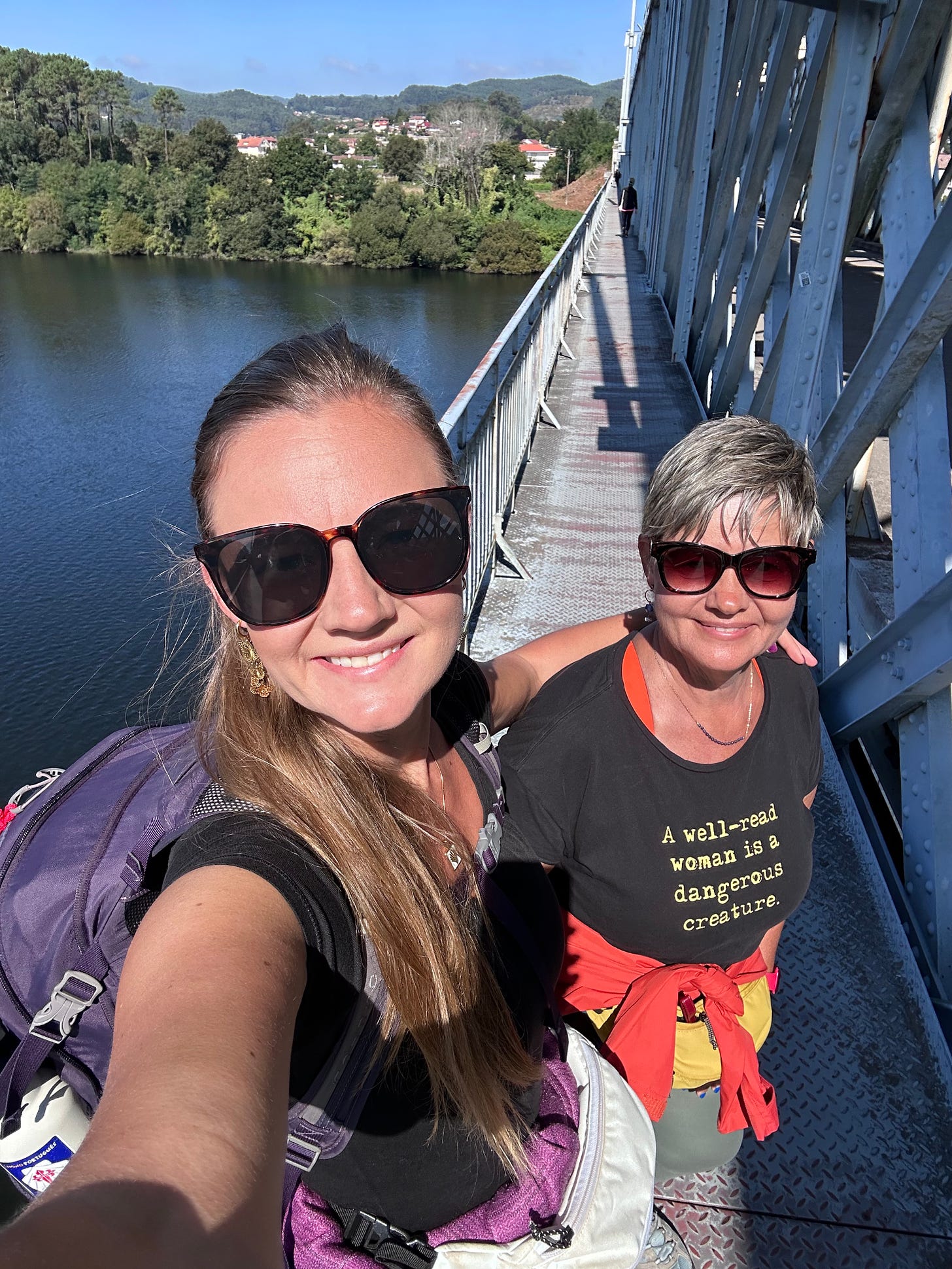
As we sit on the hillside looking out toward Spain, I pull out the pocket-sized copy of Kahil Gibran’s The Prophet that we bought at Livraria Lello in Porto, the world’s most beautiful bookstore. Marielle turns to his poem, “On Self-Knowledge” which fits the moment. This is the final stanza.
Say not, “I have found the truth,” but rather, “I have found a truth.”
Say not, "I have found the path of the soul.” Say rather, “I have met the soul walking upon my path.”
For the soul walks upon all paths.
The soul walks not upon a line, neither does it grow like a reed.
The soul unfolds itself, like a lotus of countless petals
My word for 2024 was Abundance, with Freedom and Flow in supporting roles, as I wrote about earlier this year. Abundance lies, as it turns out, in acceptance. While my journey is far from over, I have come to see that by making peace with the past, I can live in the present with an ease and contentment that has so far eluded me. The future is the unfolding of a story already written for me and I am ready to walk into its arms.
Thank you for being here. This week is the one-year anniversary of publishing Living in 3D. Some 725 subscribers have found their way here and I am so incredibly grateful for your time and presence. Come back next week for Part 3 of the Camino series!





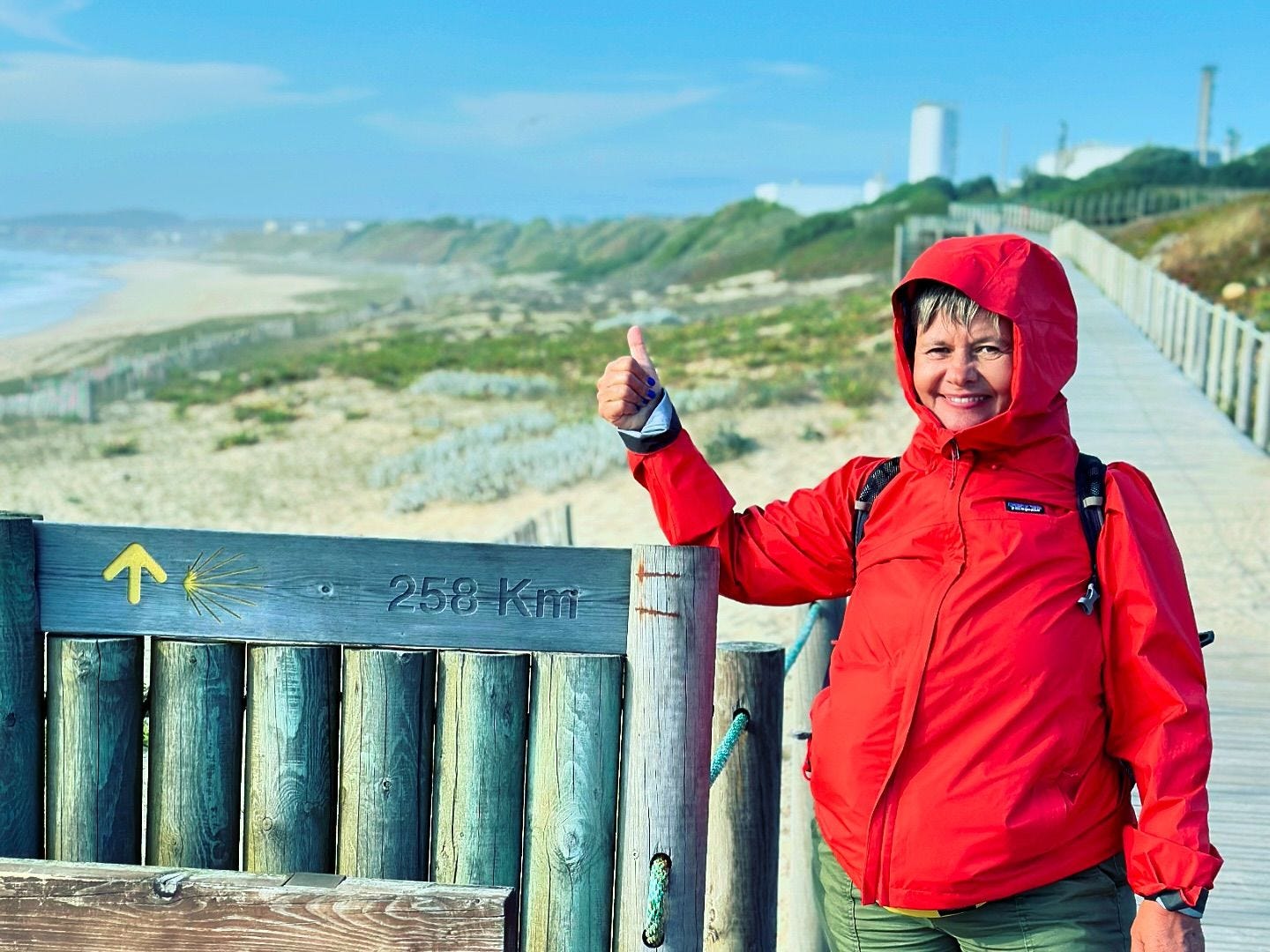
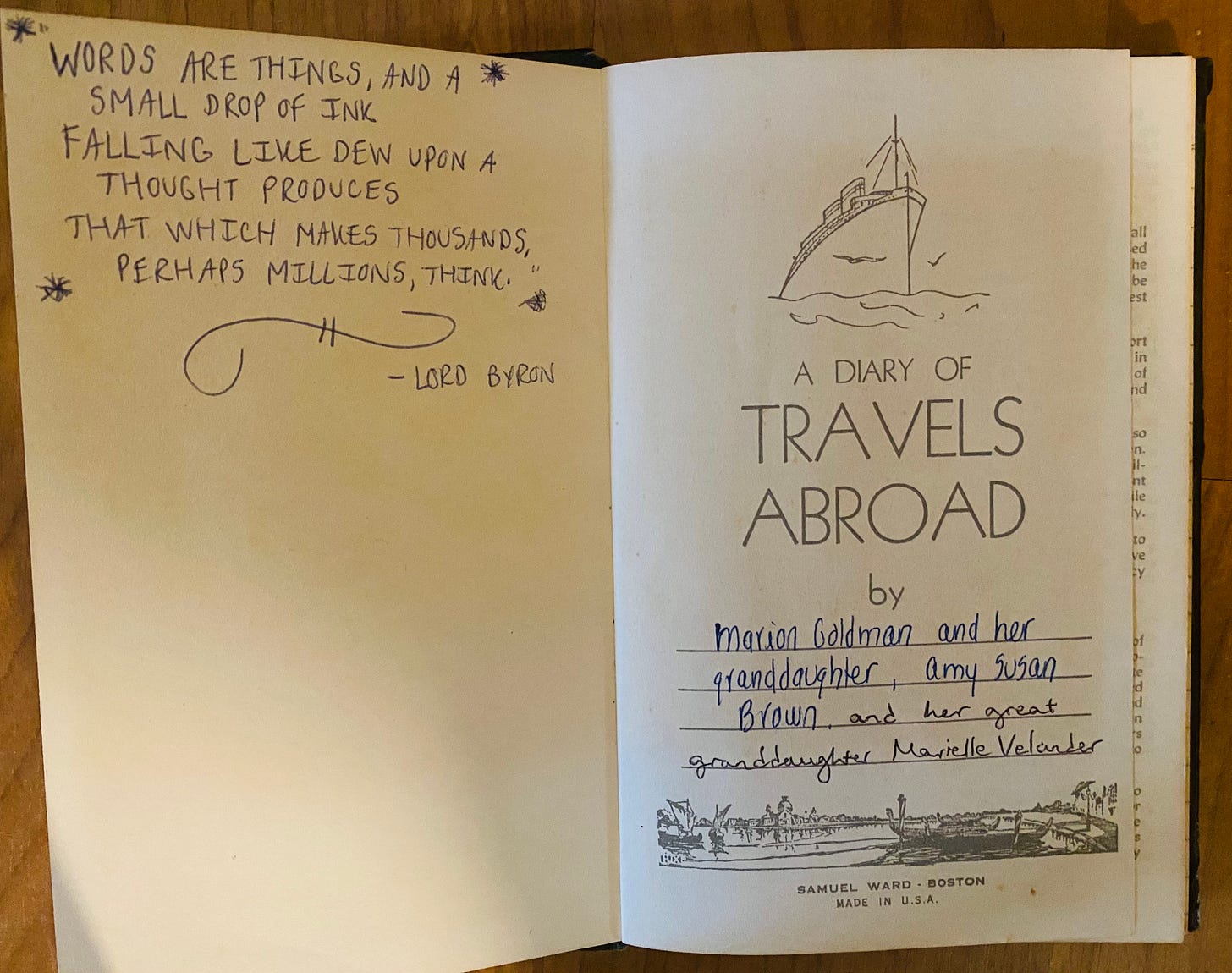

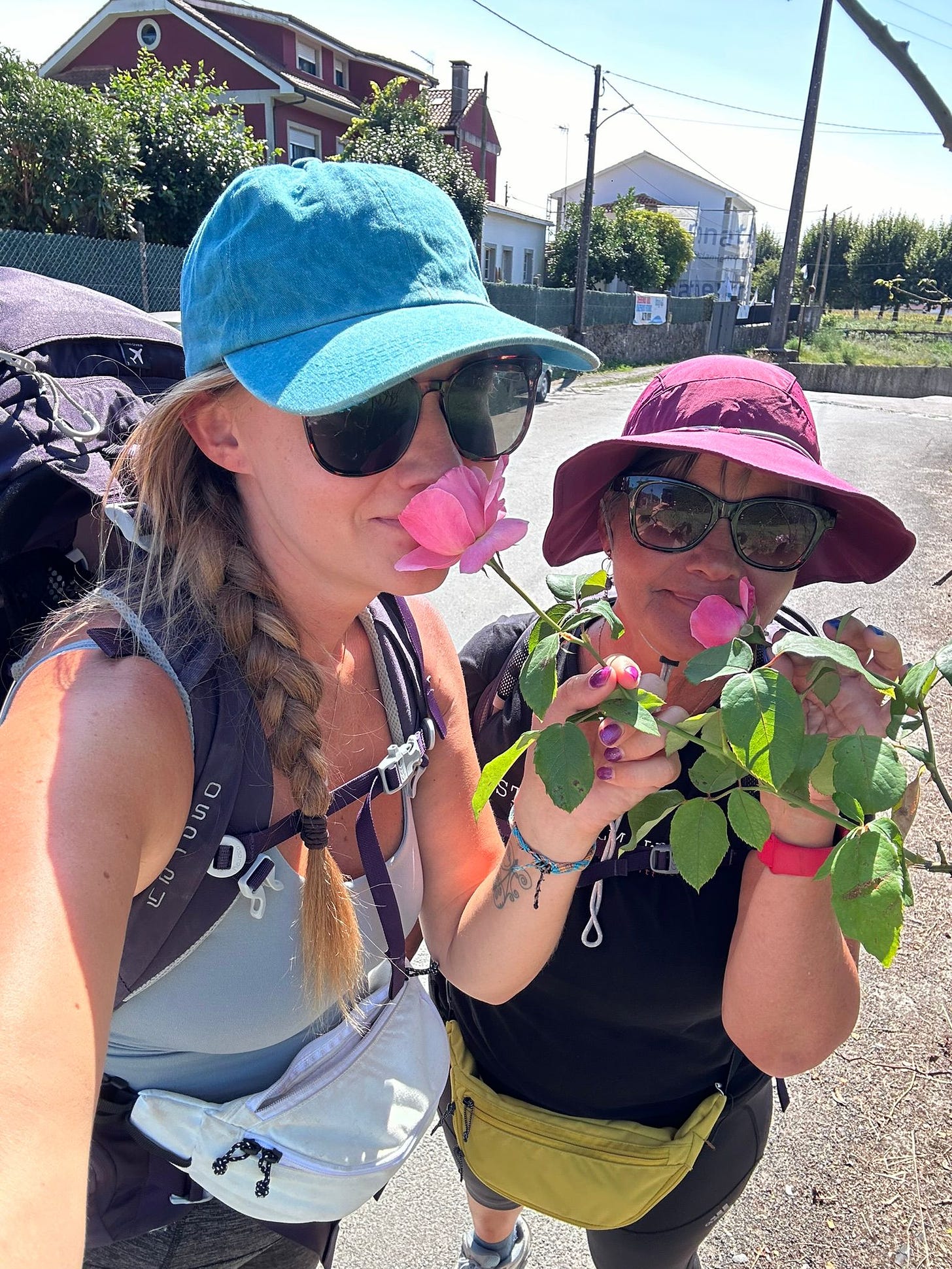
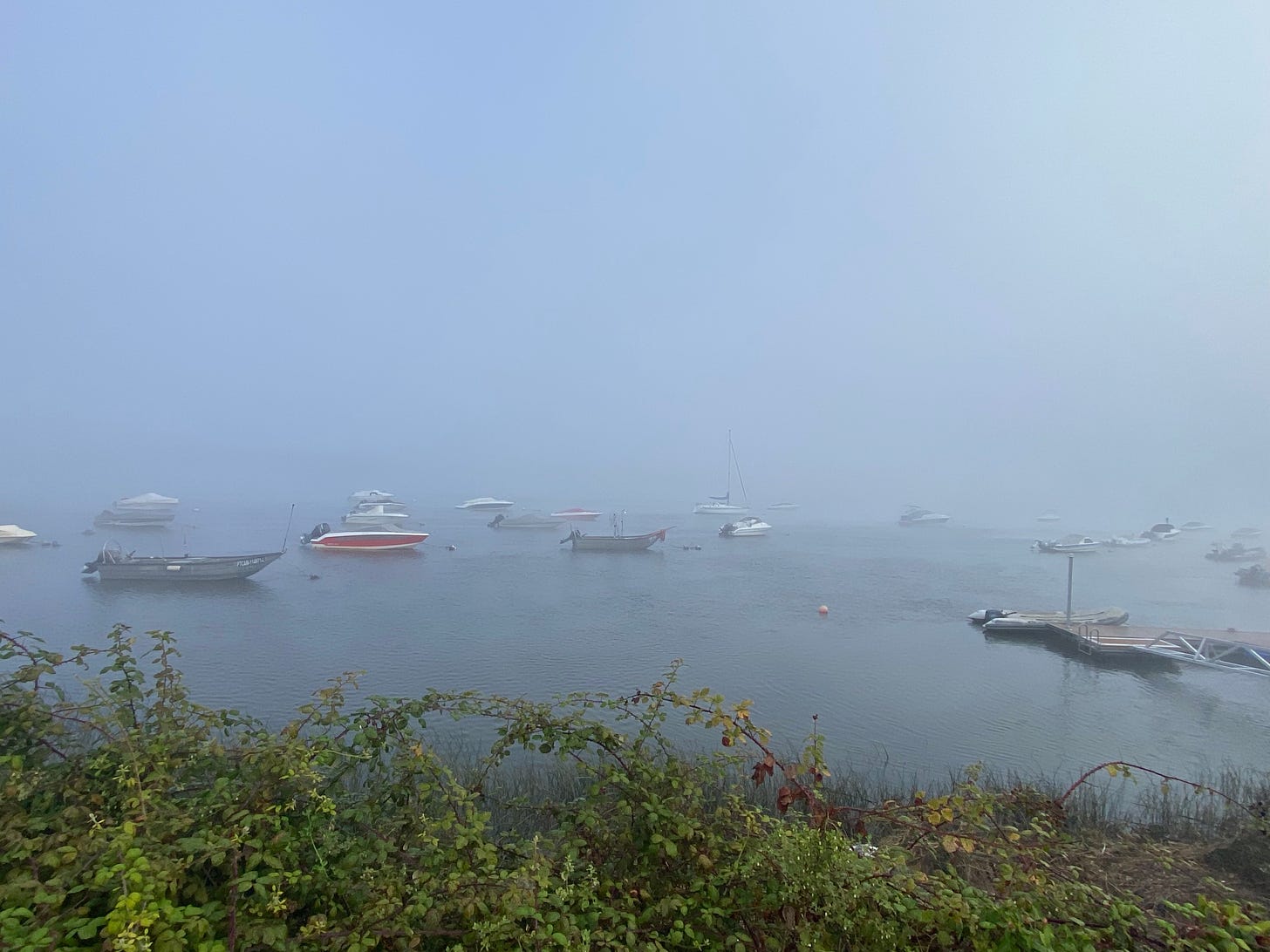


Oh Amy, Thank You! I'm so grateful today to have gone back to read this Part 2 of your Camino journey.
Your discovery of "holding on too tightly" and of "abundance lies in acceptance" both resonate deeply.
I've been mightily struggling with my current chapter not looking perhaps, as I might have hoped. And feeling stuck in a depression because of some circumstances, some of which are beyond my control to change. Sometimes being a Narrative Therapy Practitioner makes the journey more challenging because I can see even More layers of what's creating the stuckness and it can feel even more overwhelming to extricate.
I've spent so much time inward, it feels more like outward might be helpful. And yet when in depression that can be harder to do. Having treatment resistant depression wrapped in anxiety is not for the faint of heart. I try my best to be gentle with myself. To keep living one day at a time. And to see the good around me. Of which there is much!
This is all to say again, thank you. I would so like to walk the Camino. I think it would truly be helpful. Thank you for the extra encouragement to pursue through your posts. With lots of love, Kristin
Loving the thought of your singing Austrian and his drying underpants Amy!